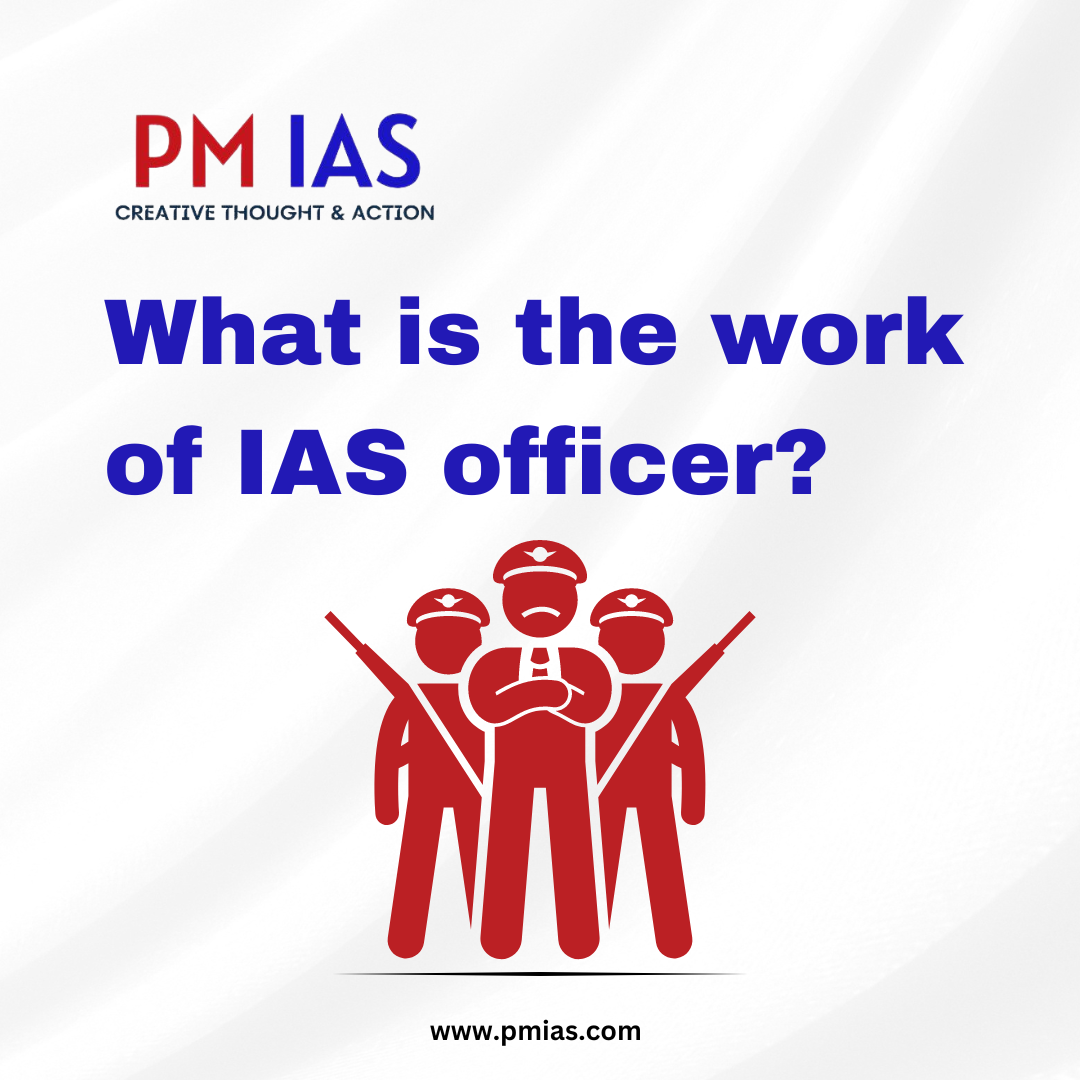The work of an Indian Administrative Service (IAS) officer is diverse and challenging, encompassing a wide range of responsibilities at various levels of the government. IAS officers are part of the permanent bureaucracy and play a crucial role in the administration of the country. Here’s a detailed explanation of the work of an IAS officer:
Policy Formulation and Implementation for officer:
Policy Development: IAS officers contribute to the formulation and development of policies and programs at the central, state, and district levels.
Policy Implementation: They play a key role in implementing government policies effectively on the ground.
District Administration:
District Collector: At the district level, IAS officers often start their careers as District Collectors. They are responsible for overall administration, law and order, and development in the district.
Supervision of Departments: IAS officers oversee various government departments in the district and ensure the smooth functioning of public services.
Revenue Administration:
Revenue Collection: IAS officers are responsible for revenue collection and management in their respective districts.
Land Records and Settlement: They oversee the maintenance of land records and settlement operations.
Public Relations and Grievance Redressal:
Public Interaction: IAS officers interact with the public, address grievances, and work towards maintaining a positive relationship between the government and citizens.
Public Awareness: They play a role in creating awareness about government programs and initiatives.
Developmental Projects for IAS officer:
Project Implementation: IAS officers are involved in planning, financing, and executing various developmental projects in their jurisdictions.
Infrastructure Development: They oversee the construction of roads, bridges, schools, and other essential infrastructure.
Social Welfare and Education:
Education Sector: IAS officers are responsible for the administration of the education sector in their districts. This includes overseeing schools and educational programs.
Social Welfare Programs: They implement and monitor social welfare schemes aimed at upliftment of marginalized sections of society.
Law and Order for IAS officer:
Maintaining Law and Order: IAS officers, especially at the district level, play a critical role in maintaining law and order. They work closely with the police to ensure peace and security.
Disaster Management:
Disaster Preparedness: IAS officers are involved in disaster management activities. They coordinate relief efforts during natural calamities and emergencies.
Election Commission Duties:
Conducting Elections: During election periods, IAS officers often serve as Returning Officers and are responsible for conducting free and fair elections in their constituencies.
Policy Research and Analysis:
Research: IAS officers engage in research activities to analyze the impact of existing policies and suggest improvements.
Policy Advice: They provide valuable inputs to the government for shaping effective policies.
Central Government Deputation:
Central Assignments: IAS officers may be deputed to central government departments for specific assignments, contributing to policy formulation at the national level.
International Assignments:
Foreign Assignments: IAS officers may represent the country in international organizations or work on assignments related to foreign affairs.
Liaison with Other Departments:
Inter-Departmental Coordination: IAS officers facilitate coordination between various government departments for seamless governance.
Administrative Tribunals:
Adjudication: Some IAS officers are appointed as members of administrative tribunals to adjudicate disputes and ensure fairness in administrative actions.
Public Finance Management:
Budgeting: IAS officers are involved in the preparation and management of budgets, ensuring efficient utilization of public funds.
Ethical Governance:
Upholding Ethical Standards: IAS officers are expected to maintain the highest ethical standards in their administrative functions.
Conclusion:
The work of an IAS officer is dynamic and multifaceted, requiring a combination of administrative, managerial, and leadership skills. They serve as a bridge between the government and the public, working towards the overall development and welfare of society. The role evolves as officers progress in their careers, with opportunities to contribute to policy-making and governance at higher levels.
The dynamic role of an IAS officer demands administrative, managerial, and leadership skills. Aspiring candidates, join PMIAS academy | Best IAS academy in Coimbatore – your gateway to excellence in IAS preparation. Start your journey now!
